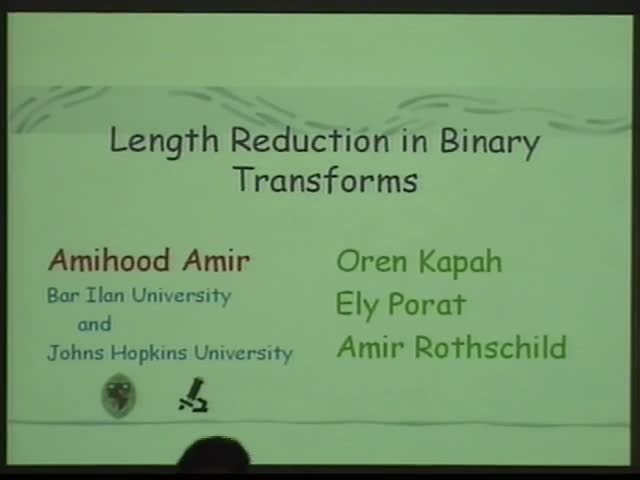Length Reduction via Polynomials
Presenter
February 16, 2012
Keywords:
- Computer science
Abstract
Efficient handling of sparse data is a key challenge in Computer Science. Binary convolutions, such as the Fast Fourier Transform or theWalsh Transform are a useful tool in many applications and are efficiently solved.
In the last decade, several problems required efficient solution of sparse binary convolutions.
Both randomized and deterministic algorithms were developed for efficiently computing the sparse FFT. The key operation in all these algorithms was length reduction. The sparse data is mapped into small vectors that preserve the convolution result. The reduction method used to-date was the modulo function since it preserves location (of the ”1” bits) up to cyclic shift.
In this paper we present a new method for length reduction - polynomials. We show that this method allows a faster deterministic computation of the sparse FFT than currently known in the literature. It also enables the development of an efficient algorithm for computing the binary sparse Walsh Transform. To our knowledge, this is the first such algorithm in the literature.
(Joint work with Oren Kappah, Ely Porat, and Amir Rothschild)
